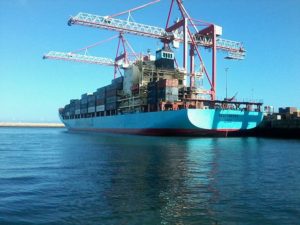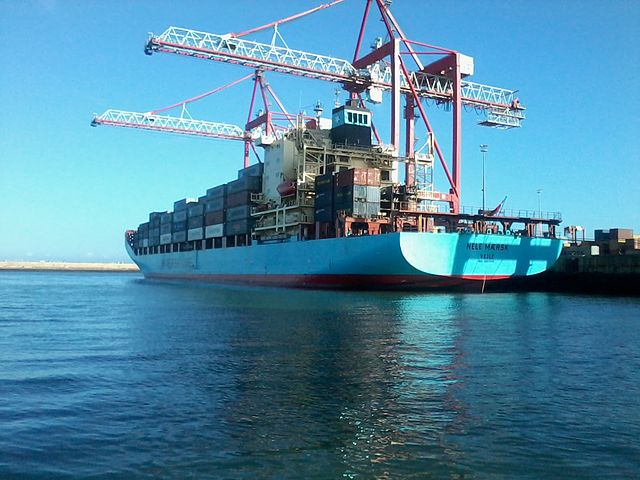 The new ocean shipping alliances are expected to trumpet faster transit times and reliability to lure shippers, and to achieve this feat, they are likely to go for more streamlined services and forgo some port calls, Drewry predicts.
The new ocean shipping alliances are expected to trumpet faster transit times and reliability to lure shippers, and to achieve this feat, they are likely to go for more streamlined services and forgo some port calls, Drewry predicts.
The maritime shipping consultancy came to this conclusion after analyzing 2M carriers Maersk Line and MSC’s newly announced Asia-North Europe network that will come into effect in the third quarter peak season.
“The changes are subtle with the number of ships and services staying the same and maintaining the same branding, but the port rotations of each loop will be altered and with fewer port calls transit times will be reduced,” it said.
2M seems to have decided to speed things up ahead of its new rivals, THE Alliance, whose member lines have crowed that shippers can look forward to “very attractive transit times” next year, it further observed.
“Rather than increasing the operating speed of vessels—an unattractive cost proposition in light of bunker prices doubling in recent months—the 2M carriers have decided to reduce the number of ports served. Inevitably this means that they will lose some direct connections but the pay-off is that transit times in surviving corridors can be reduced as more time is spent at sea,” said Drewry.
On 2M’s new schedule, the reduction of port calls will mainly come from Asia with the number of westbound departures from the region dropping from 36 to 33. In Japan, the ports of Kobe and Nagoya, currently served by the AE-1/Shogun service, will be dropped completely with only one weekly westbound call from Yokohama remaining.
“This is perhaps an admission that they do not expect to be able to compete in the Japan market with THE Alliance and its three Japanese partners,” said Drewry.
Following the changes, Maersk will swap the Japanese ports from its AE-1 service to its Safari service to provide what the company said will be a unique direct connection between South Africa and Japan. The carrier added that it will continue to serve the Japanese market to North Europe and the rest of the world via transshipment. MSC is beefing up its Japan feeder Origami Express service with a third ship to create a butterfly operation connecting Japan through its Ningbo hub.
Meanwhile, comparing transit times to the key North European ports of Hamburg and Rotterdam from Asia that the group will be offering, the research service said “2M will have the best in class from three ports in Asia to Hamburg, and from five Asian ports to Rotterdam when the new network comes into effect.”
“The reductions in transit times from 2M’s network re-tuning are not huge but it is clear that shippers can expect to see carriers and alliances putting speed and reliability at the forefront of their sales pitches. It is likely that the other two alliance groups will design their own networks to be competitive with 2M,” it said.
Photo: Farid mernissi





